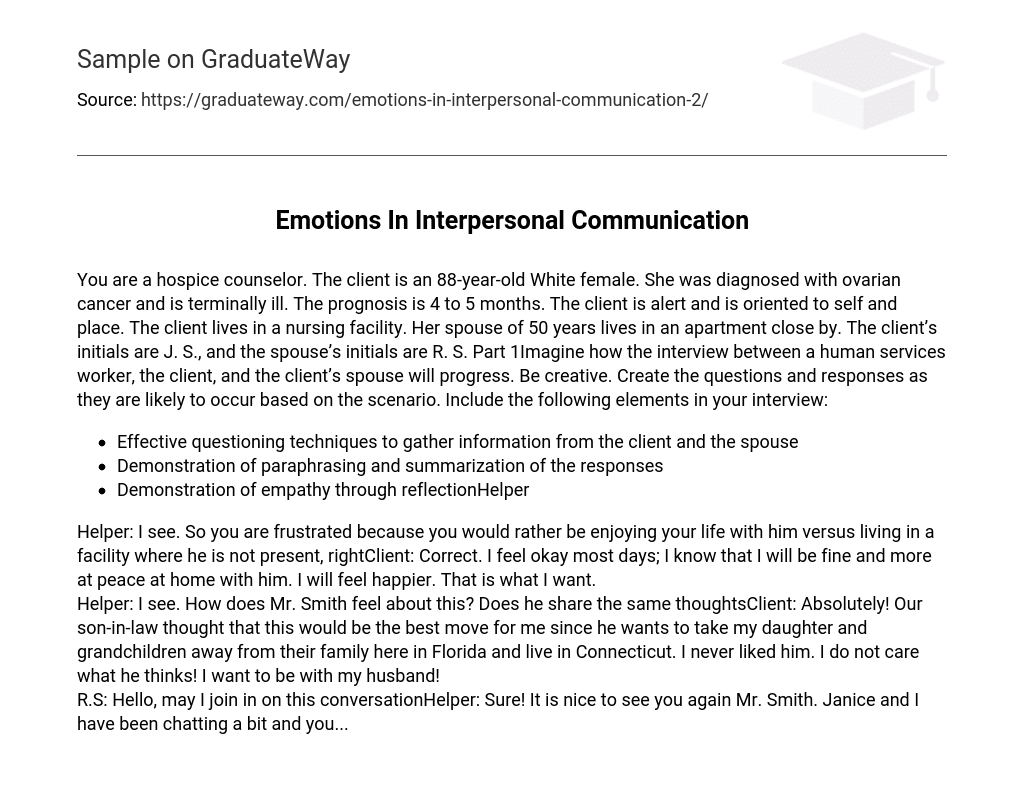You are a hospice counselor. The client is an 88-year-old White female. She was diagnosed with ovarian cancer and is terminally ill. The prognosis is 4 to 5 months. The client is alert and is oriented to self and place. The client lives in a nursing facility. Her spouse of 50 years lives in an apartment close by. The client’s initials are J. S., and the spouse’s initials are R. S. Part 1Imagine how the interview between a human services worker, the client, and the client’s spouse will progress. Be creative. Create the questions and responses as they are likely to occur based on the scenario. Include the following elements in your interview:
- Effective questioning techniques to gather information from the client and the spouse
- Demonstration of paraphrasing and summarization of the responses
- Demonstration of empathy through reflectionHelper
Helper: I see. So you are frustrated because you would rather be enjoying your life with him versus living in a facility where he is not present, rightClient: Correct. I feel okay most days; I know that I will be fine and more at peace at home with him. I will feel happier. That is what I want.
Helper: I see. How does Mr. Smith feel about this? Does he share the same thoughtsClient: Absolutely! Our son-in-law thought that this would be the best move for me since he wants to take my daughter and grandchildren away from their family here in Florida and live in Connecticut. I never liked him. I do not care what he thinks! I want to be with my husband!
R.S: Hello, may I join in on this conversationHelper: Sure! It is nice to see you again Mr. Smith. Janice and I have been chatting a bit and you…





